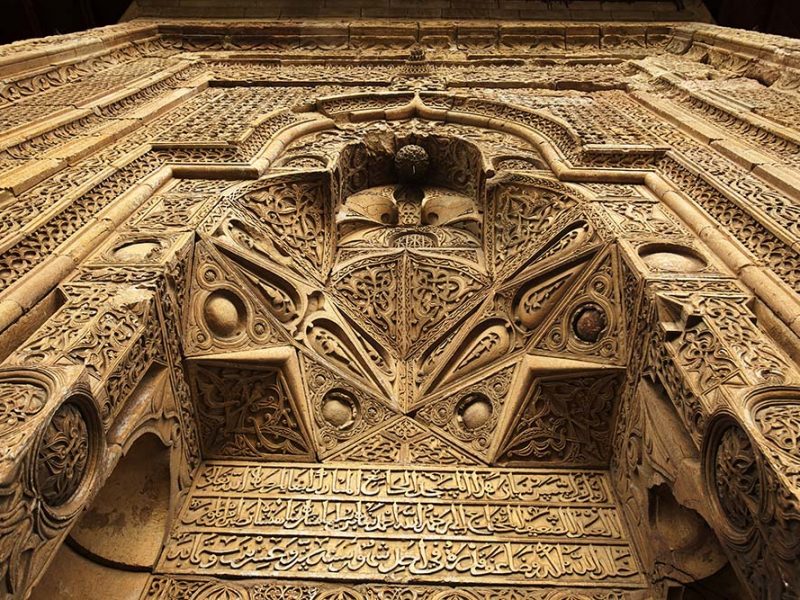Nestled in the heart of Sivas, Divriği Grand Mosque and Hospital (Darüşşifa) is a masterpiece of 13th-century Islamic architecture and one of Turkey’s first UNESCO World Heritage Sites, inscribed in 1985. Often referred to as the “Divriği Miracle” or the “Alhambra of Anatolia,” this structure is a rare blend of faith, science, and sublime artistry.
The complex was built in 1228 by the Mengücek Beylik, under the Seljuk Empire, and includes a mosque, a darüşşifa (hospital), and a tomb. Chief architect Ahlatlı Hürrem Şah, along with master craftsmen from Ahlat and Tiflis, brought to life an architectural wonder whose every detail tells a story.
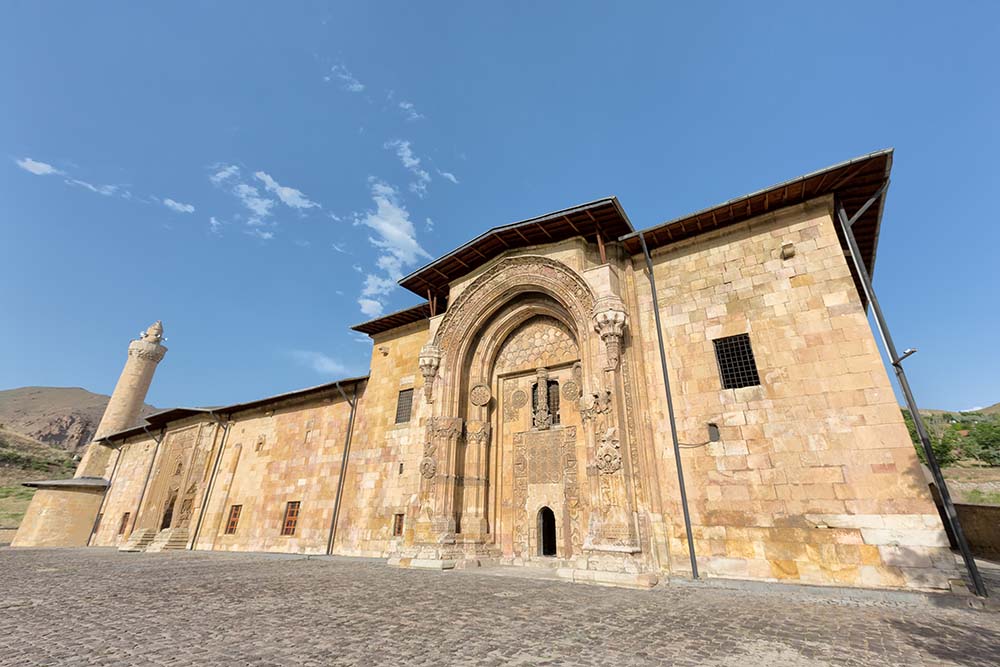
Divrigi Grand Mosque
An Architectural Marvel Beyond Compare
What sets Divriği apart is its astonishing stone artistry, especially on its four iconic gates:
- Heaven’s Gate (Cennet Kapısı)
- Shah Gate (Şah Kapısı)
- Western Gate (Bazaar/Textile Gate)
- Darüşşifa Crown Gate
Each gate is adorned with tens of thousands of hand-carved motifs; floral, geometric, symbolic; none of which repeat. The asymmetry of the motifs cleverly masks itself in visual balance, creating an illusion of perfection. This complexity, symbolism, and artistry has no parallel in Turkish or Islamic art.
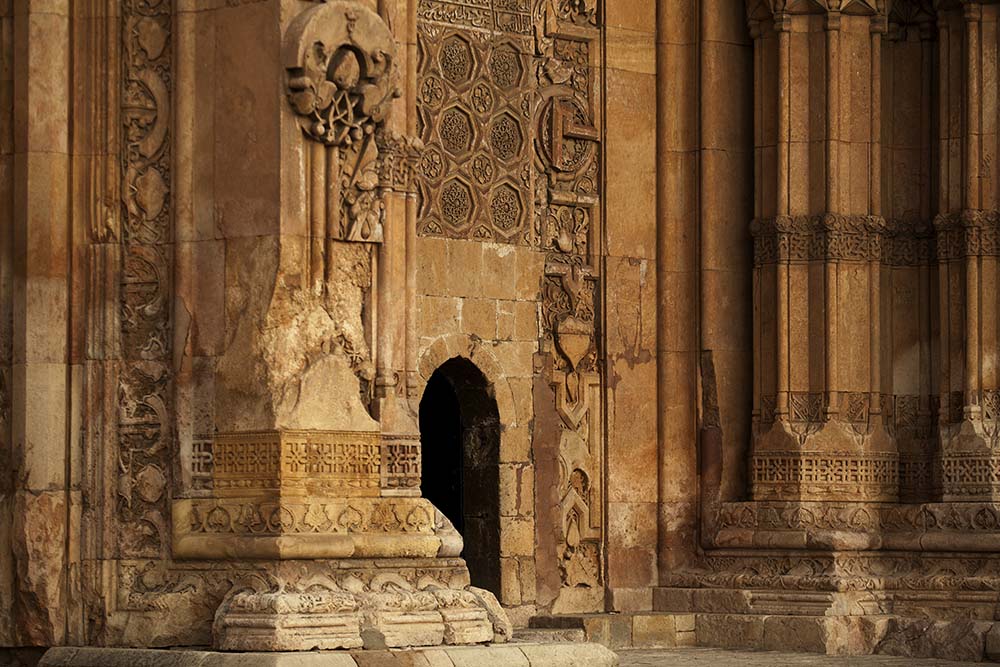
Divrigi Grand Mosque
Heaven’s Gate: A Portal to the Divine
Among all, Heaven’s Gate is the most spiritually evocative. Its motifs reflect descriptions of paradise in the Quran, and it was dedicated to Sultan Alaaddin Keykubat, himself an architect. One motif -a plant of immortality growing from a pot- echoes Egyptian symbolism, showcasing cultural synthesis. Despite centuries of study, the gate’s hidden meanings remain largely undeciphered, adding to its mystique.
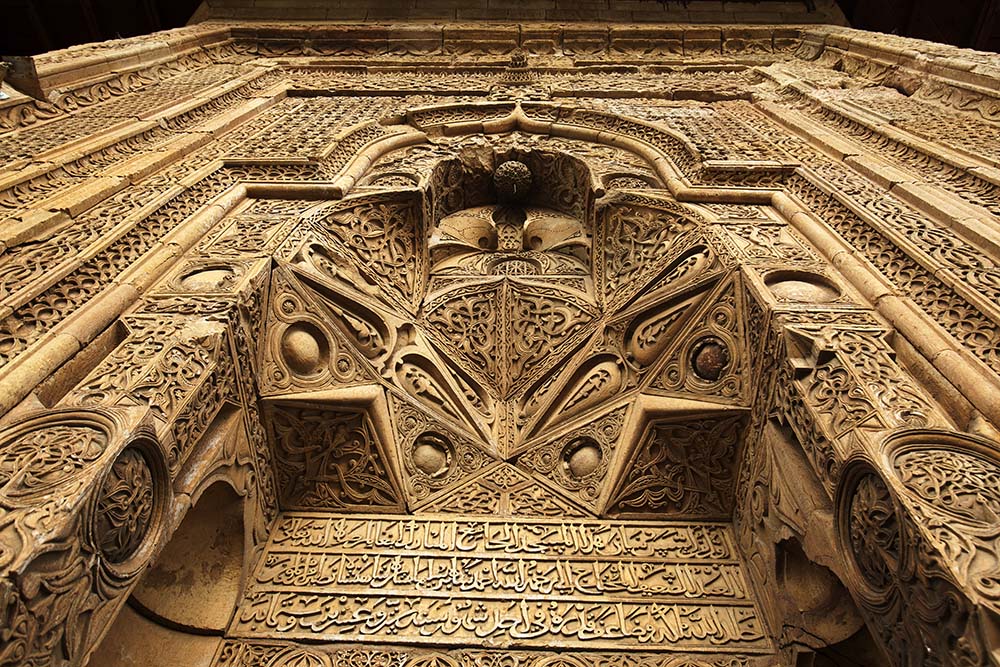
Divrigi Grand Mosque
Shah Gate: A Lesson in Humility
Located on the eastern side, the Shah Gate reflects classical Seljuk architecture. Notably, its height matches that of a human, subtly reinforcing Islamic values of humility. Though less ornate than Heaven’s Gate, it stands as a spiritual threshold; symbolic and respectful.
Western Gate: Stone That Casts a Shadow
Also called the Textile Gate due to its rug-like carvings, the Western Gate showcases lace-like details that mimic prayer rugs. Between May and September, 45 minutes before sunset, it casts a shadow resembling a person in prayer; a phenomenon that captivates both believers and tourists.
It also features:
- Tulip motifs: a symbol of monotheism in Islamic art
- Double-Headed Eagle: representing Seljuk power and sovereignty
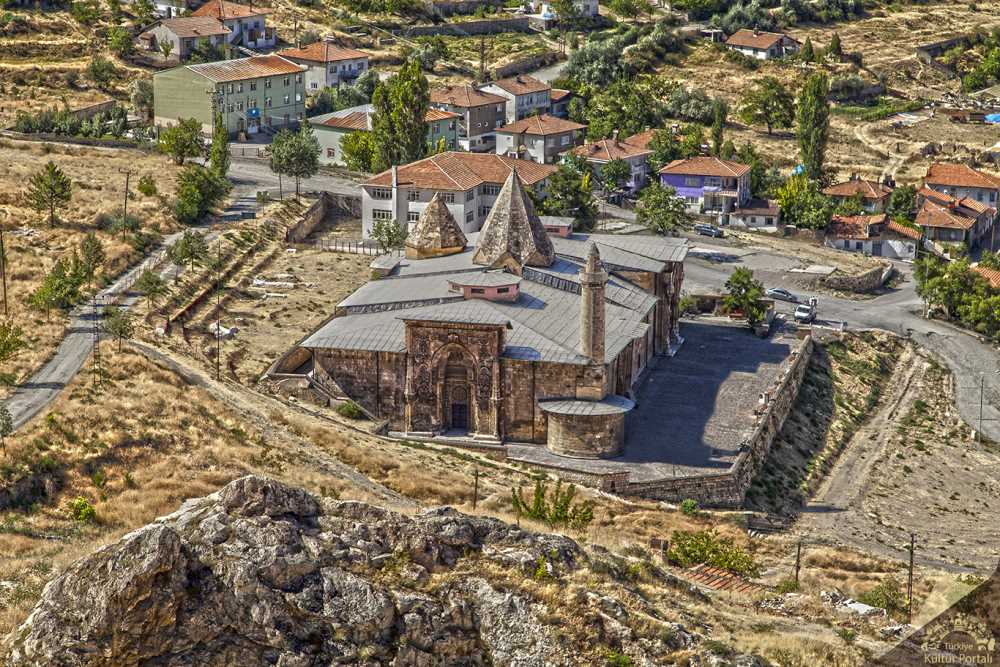
Whole complex of mosque and hospital
Darüşşifa Crown Gate: Geometry, Balance, and Healing
Right next to the mosque, the Darüşşifa Crown Gate features pentagonal and octagonal stars, reflecting Turkic culture. At its center is the famous “Balance Column,” which could rotate until the 1939 earthquake. Damaged human motifs; once present; testify to shifting religious sensitivities in modern times.
A Hospital Built by a Woman: A Forgotten Legacy
One of the most extraordinary aspects of the complex is that the Darüşşifa (hospital) was commissioned by a female patron; a rarity in medieval times. Some sources suggest it may also have been managed by women, highlighting the progressive legacy of the era.
Here, patients (especially those with mental or nervous conditions) were treated with:
- Sound therapy using flowing water
- Quran recitations
- Sufi music
- Architectural acoustics for healing
The central water pool and drainage system still stand today as a testament to early Islamic holistic medicine.
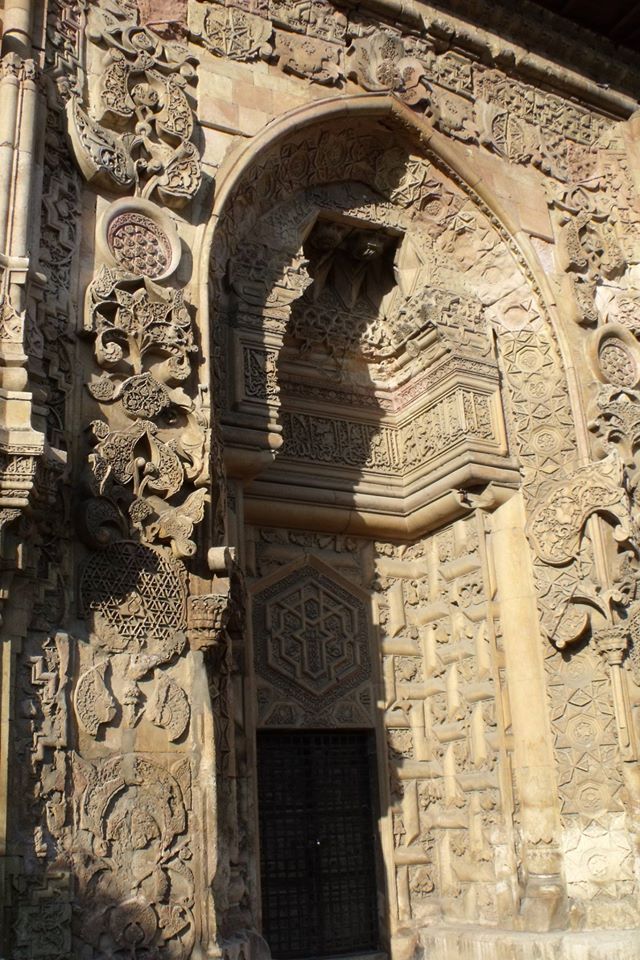
Praying woman shadow in Divriği Grand Mosque gate
A Spiritual and Artistic Destination
With every step through Divriği Grand Mosque and Hospital, you’re walking into a living prayer, a canvas of carved devotion, and a place where stone breathes and sings. As Evliya Çelebi famously said:
“In praise, tongues are tied, the pen is broken.”
Plan Your Visit
Divriği is not just a historical landmark; it’s a spiritual, architectural, and healing experience. Whether you’re an art lover, historian, or seeker of spiritual insight, the Divriği Grand Mosque and Hospital is a must-see treasure of Turkey’s cultural heritage.

